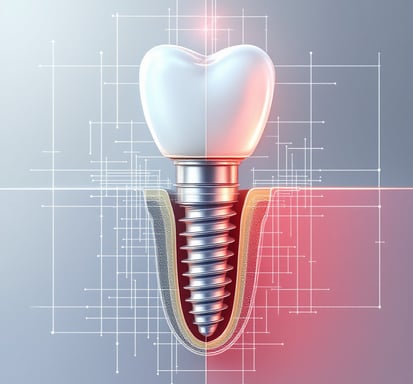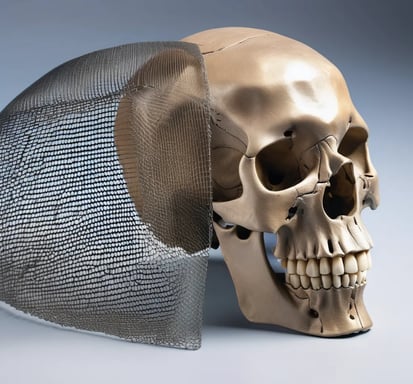Titanium in Medicine: The Ultimate Choice for Implants?
Titanium isn’t just another metal—it’s the superhero of medical implants! But what makes it so special? From unmatched biocompatibility to incredible strength, titanium has revolutionized modern medicine. Dive into the science behind why surgeons and patients trust this wonder metal. Would you choose titanium for a life-saving implant? Let’s discuss!
HEALTH
4/7/20252 min read


Why Titanium is the Gold Standard for Medical Implants?
Titanium has become the preferred material for medical implants used in significant procedures. It offers a safe, durable, and efficient solution for various surgeries. Its biocompatibility, ability to integrate with bone, resistance to corrosion, and lightweight strength make it the ultimate choice for long-term implants.
Because of its formability, titanium can be sculpted into a variety of implants, such as:
Cranioplasty (skull surgery)
Dental implants
Bone plates and screws for fractures
Spinal fixation rods
Pacemaker casings and cardiovascular implants
Joint replacements (hip, knee, and shoulder)
But why is this metal so distinctive for implants in the human body? Let's explore the science behind its popularity.
1. Biocompatibility: Safe and Non-Toxic
Biocompatibility is the most crucial factor when choosing a metal for implants. Titanium does not trigger allergies, inflammation, or immune system rejection. Unlike other metals that can cause irritation or toxicity, titanium remains stable and safe within the human body.
2. Osseointegration: Fusing Naturally with Bone
Over time, titanium forms a direct bond with bone due to a remarkable characteristic known as osseointegration. This ensures that implants remain securely in place without requiring extra support structures or adhesives. Because of this feature, titanium is highly beneficial in orthopedic surgeries and dental implants, where long-term durability is essential.
3. Corrosion Resistance: Built to Last
Certain metals may corrode due to continuous fluid exposure inside the human body. However, titanium naturally forms a protective oxide layer, preventing corrosion and deterioration. This minimizes the need for replacement surgeries, ensuring that titanium implants remain intact and functional for decades.
4. Strength Without the Weight
Titanium is lightweight and strong, which makes it a perfect fit for implants. Other heavier metals can cause discomfort or even complications by putting stress on bones and muscles. Titanium offers the durability required for medical applications without adding extra weight, which makes it particularly useful for orthopedic plates and joint replacements.
5. MRI Compatibility: No Interference with Scans
Titanium is non-magnetic, in contrast to certain metals that might obstruct MRI (Magnetic Resonance Imaging) examinations. This implies that there are no potential risks or variations in the scan results for individuals who have titanium implants.
6. Long-Term Durability
It is believed that titanium implants will endure for many years, if not forever. These implants seldom require replacement because of their structural integrity and resistance to corrosion. Because of its longevity, it is a dependable and affordable option for both patients and healthcare professionals
Does Titanium Set Off Metal Detectors?
Since titanium is non-magnetic and has poor electrical conductivity, titanium implants typically do not set off metal detectors. However, extremely sensitive scanners may detect large implants. If needed, simply notify security personnel for a manual check.


